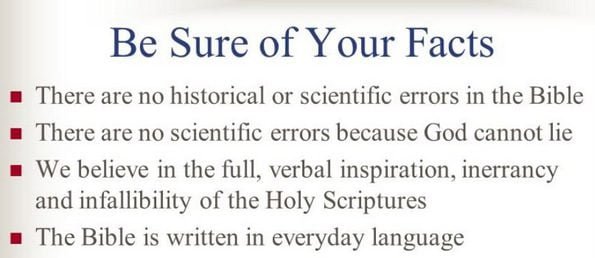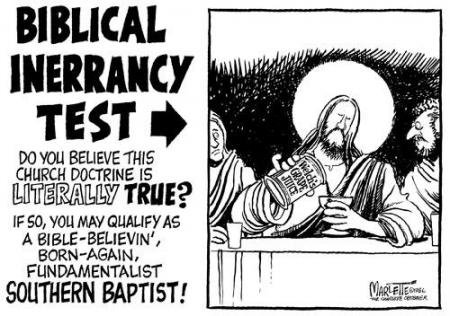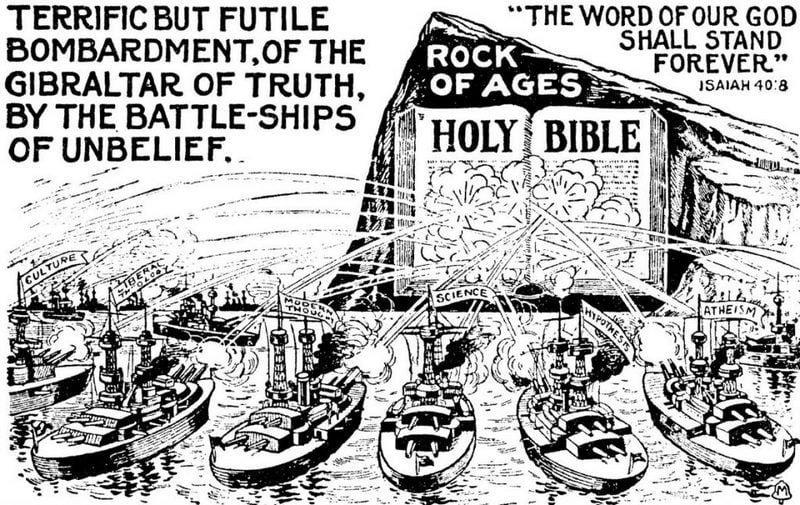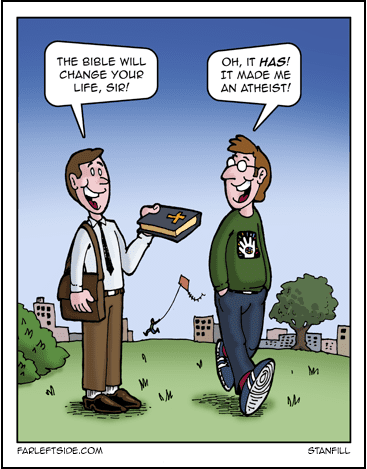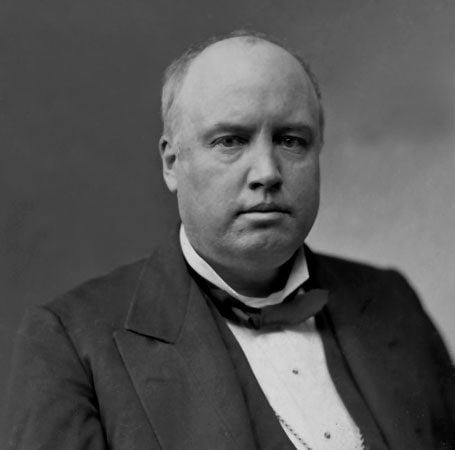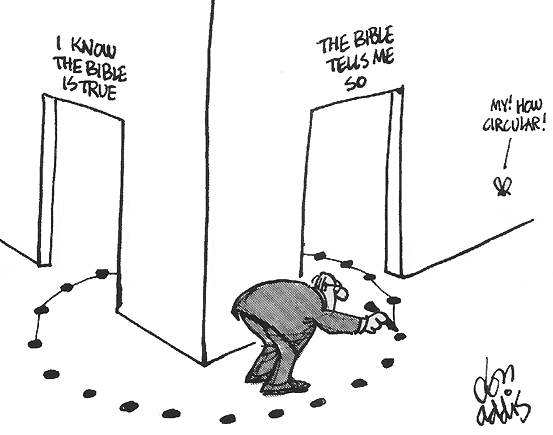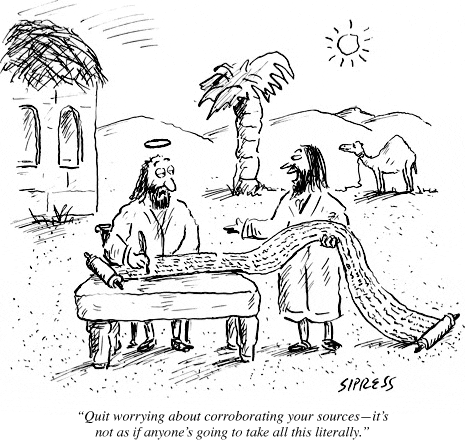
Dr. David Tee, whose real name is Not-a-Doctor Derrick Thomas Theissen, hadn’t written about me in several weeks, so I thought, Has Thiessen seen the light? Has he moved on to other blogs besides this one and Meerkat Musings? Has he figured out how to write his own content instead of dishonestly ripping off mine? Sadly, my thoughts were too good to be true. On Saturday, Thiessen wrote a missive titled The Bible IS What It Claims to Be; a response to my post, Dear Evangelical, Just Because You Quote the Bible Doesn’t Make Your Comment True. Of course, Thiessen does not mention who wrote the post he is responding to or where it is located.
Here’s an excerpt from Thiessen’s post:
The Bible is what it claims to be. If it wasn’t, the world would be lost and no one would have any hope. Anarchy would be the rule of law and the survival of the fittest would influence just about every action possible. There would be no morals, no laws and everyone would do what is right in their own eyes.
When people dismiss the Bible, they do this even though the Bible is what it claims to be, They consider themselves greater than God and think they can do things better than him. So far, they have all failed.
The crime rate is a prime example of their failure. Their best solution, so far, has been to take action that lets a few liberals, progressives, and democrats gain control over everyone else. They dictate to the people what words can be said, what actions can be done, and they need to be stopped before it is too late.
Unbelievers have nothing to offer anyone, yet they feel superior to everyone through their condemnation of the Bible and their claims that it is not what it claims to be.
Thiessen quotes what I said about what Evangelicals generally believe about the Bible:
- The Bible is the inspired, inerrant, infallible Word of God
- The Bible is THE book above all other books
- Every word in the Bible is true
- The Bible is NEVER wrong
- Doubting the Bible’s truthfulness is sin
- The words attributed to Jesus in the gospels were actually spoken by him
- The Bible presents a blueprint, manual, guideline for living
Thiessen replied:
Some atheists call these characteristics presuppositions but that is an erroneous labeling. Christians believe these things about the Bible because they are true. The Bible is never wrong and it is the only blueprint, manual etc., for living and so on.
Later in his post, Thiessen quotes me again: Most Evangelicals fail to question or challenge the presuppositions their proof-texts are based upon. To this, he replied:
This is a common complaint made by unbelievers. They think that Christians only do proof-texting when quoting the Bible. They do not understand that some verses are stand-alone passages that deal with a given situation perfectly.
Then they will call the Christian’s beliefs pre-suppositions ignoring the fact that the Christian has already questioned and studied the different passages of the Bible and know that they are true. Just because the unbeliever does not accept the truthfulness of the Bible does NOT make it untrue.
Evidently, Thiessen doesn’t know the definition of the word “presupposition.” Dictionary.com defines the word this way: “something that is assumed in advance or taken for granted.”
All of us have presuppositions. We couldn’t function in life without them, However, when Evangelicals want to challenge my atheism or convince me of the truthfulness of Christianity, then I am going to demand they, at the very least, acknowledge the presuppositions in their worldview.
For the sake of this discussion, presuppositions are things that are believed by default; without evidence (or sufficient evidence). The goal for all of us should be to believe as many true things as possible. We should strive to have as few presuppositions as possible.
Most Evangelicals have a borrowed faith; one given to them by their parents, family, and tribe. As they get older, Evangelicals will learn more and more about their “chosen” system of belief, but rarely will they challenge the presuppositions that are essential to their faith. And when they do? Typically, they stop being Evangelicals or they find ways to suppress the cognitive dissonance that comes when their core beliefs are challenged. In other words, they faith-it, facts be damned.
Thiessen attacks Dr. Bart Ehrman in his post, suggesting that Ehrman is a liar and fraud. Of course, Thiessen makes no attempt to actually respond to Ehrman. No need, right? In Thiessen’s mind, he only needs to regurgitate his presuppositions. End of discussion.
What are those presuppositions?
- The Evangelical God exists, and he is as the Protestant Christian Bible describes him
- The Evangelical God is a triune being who created the universe in six twenty-four-hour days, 6,025 years ago
- The Protestant Christian Bible was written by God and every word is inerrant and infallible
- When the Bible speaks to matters of history and science it is absolutely true
Presuppositions, by default, are claims without evidence. Either you believe them or you don’t. Thiessen believes these presuppositions, I don’t. All I see are unsupported claims. The only evidence Thiessen can provide for his presuppositions is the only evidence any Evangelical can give: the Bible says. What Thiessen and his fellow Evangelicals refuse to understand is that quoting a proof text is a claim, not evidence. If you want me to believe in the existence of the Evangelical God, you are going to have to provide actual evidence for your claim. Ditto for God creating everything and the Bible being some sort of inerrant, infallible book written by him.
If Thiessen wants me to accept his claims, I expect him to do more than quote the Not-So-Good book. The Bible is a fallible, errant collection of ancient religious books written mainly by unknown authors. While there are certainly truth claims in the Bible, the bulk of its words requires faith to believe. Faith is what people turn to when they lack facts and evidence. There was a time when faith was enough for me, but no longer. If Thiessen wants me to believe his claims, he is going to have to come up with more than Bible verses.
Bruce Gerencser, 68, lives in rural Northwest Ohio with his wife of 47 years. He and his wife have six grown children and sixteen grandchildren. Bruce pastored Evangelical churches for twenty-five years in Ohio, Texas, and Michigan. Bruce left the ministry in 2005, and in 2008 he left Christianity. Bruce is now a humanist and an atheist.
Your comments are welcome and appreciated. All first-time comments are moderated. Please read the commenting rules before commenting.
You can email Bruce via the Contact Form.




